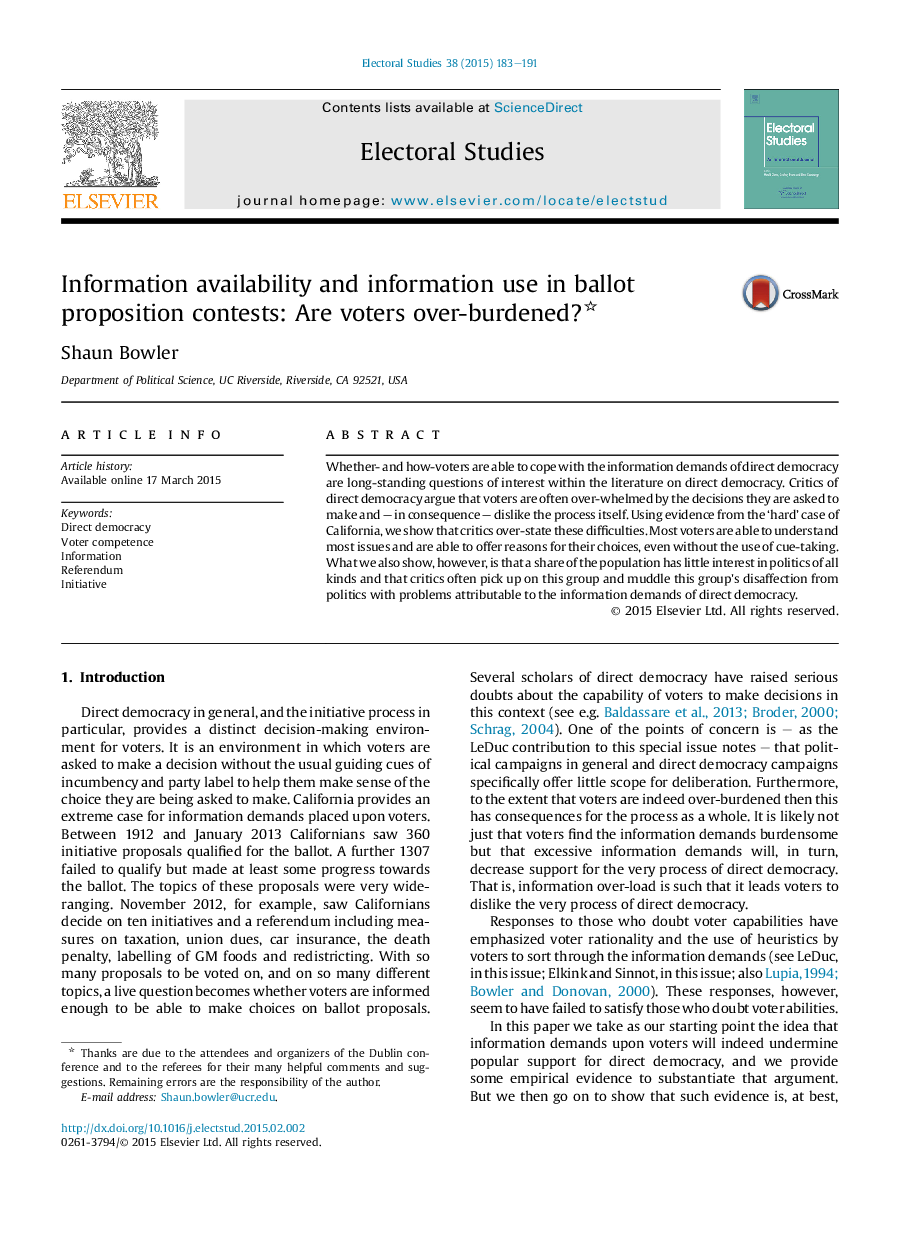| Article ID | Journal | Published Year | Pages | File Type |
|---|---|---|---|---|
| 1051727 | Electoral Studies | 2015 | 9 Pages |
Whether- and how-voters are able to cope with the information demands of direct democracy are long-standing questions of interest within the literature on direct democracy. Critics of direct democracy argue that voters are often over-whelmed by the decisions they are asked to make and – in consequence – dislike the process itself. Using evidence from the ‘hard’ case of California, we show that critics over-state these difficulties. Most voters are able to understand most issues and are able to offer reasons for their choices, even without the use of cue-taking. What we also show, however, is that a share of the population has little interest in politics of all kinds and that critics often pick up on this group and muddle this group's disaffection from politics with problems attributable to the information demands of direct democracy.
